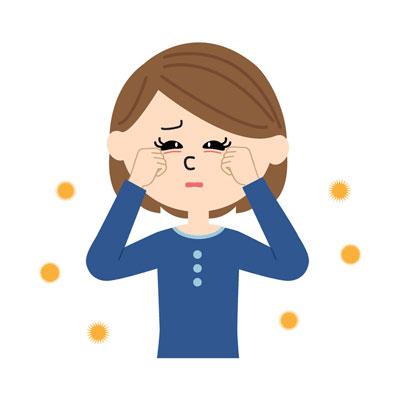Recent Posts
Eye Allergies
Posted on
Eye allergies - help from Allergena

Allergies are usually a temporary condition that flare up in the spring, summer and fall – known as season allergies. If you suffer from eye allergies you probably have sinus allergies as well. Puffy, red itchy eyes just go hand in hand with stuffy, runny noses. However, there are cases where eye allergies develop from exposure to other environmental allergens like pet dander, pollen, dust, perfume, smoke and yes, food. As you become more exposed to whatever is triggering your eye allergies the more severe your symptoms will become from extreme itching and burning to even sensitivity to light.
Most eye allergies are started by the body’s response to airborne allergens. Allergens can be found outside or inside of your home. The most common triggers are from ragweed, grass, pollen, mold, smoke, dust mites and pet dander.
Other known causes are from make-up, drugs, perfumes and house hold cleaners. Some people are even allergic to the preservatives in eye drops. Look for preservative-free eye wash and hypoallergenic facial products.
Keeping a journal of the food you eat might help solve an eye allergy. Make sure you haven’t recently been stung or bitten by an insect.
Remember allergies are genetic. If you parents suffer food or seasonal allergies there is a good chance that you will as well.
An optometrist can examine your eyes for signs of eye allergies. They will watch for swollen blood vessels on the surface of the eye. If it is not clear that it is an allergy, or if your allergies are severe, your doctor may test for a specific type of white blood cells (called eosinophils) that appear in an eye when inflamed by irritants. This test is performed by gently scraping a tiny area of the conjunctiva and testing the tissue.
When you are inside use your air conditioner and keep your windows closed to help minimize your exposure to pollen and other irritants. Window fans are a big no-no! They draw the allergens insides. Keep the filters in your air conditioning units clean so they won't cycle allergens back into the air.
If mold is one of your triggers, recognize that high humidity is not your friend. Aim to keep the humidity level inside your house around 30 to 50 percent. Don’t let high-humidity areas like bathrooms, and basements cause your allergies to worsen. Install a dehumidifier. Fish tanks, though soothing can be a great place for mold to grow.
For some, dust mites are the number one problem for allergy sufferers. Clean your bedding often in hot water and dry in a hot dryer. Purchase allergen-reducing pillows. If you have wood floors use a damp mop or rag to trap pollen and pet dander. Toss out those stuffed animals you’ve had since grade school and if possible, use wooden blinds instead of cloth drapes.
If pet dander is a source of runny eyes and sneezing for you, keep Fluffy outside as much as possible. It is also extremely important not to let the animals into your bedroom. Try to keep one room in the house allergen free. Install hardwood or tile floors instead of carpeting to help keep the pet dander under control. Carpet tends to trap the pet dander and only release it when the kids are running through the house.
Whatever the reasons for your eye allergies, having red, puffy eyes is not the most glamorous look. But… Your budget says no to expensive shots. The over-the-counter allergy remedies leave you feeling like you need a nap. What is your next choice?
Allergy drops have been getting a lot of attention from many reputable medical sources lately, and for good reason - they work! Allergena is made for 9 different geographical zones in the U.S. This means the antigens in a bottle of Allergena for your zone are specific to the trees, weeds, and grasses that are causing you to suffer! Click here for more information
 Loading... Please wait...
Loading... Please wait...
